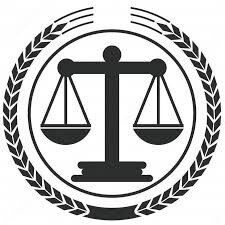Best Military Law Lawyers in Karachi
Share your needs with us, get contacted by law firms.
Free. Takes 2 min.
List of the best lawyers in Karachi, Pakistan
About Military Law in Karachi, Pakistan
Military Law in Karachi, Pakistan, is governed by a body of laws and regulations that apply specifically to members of the armed forces. This legal system encompasses various statutes, codes, and regulations intended to maintain discipline, order, and justice within the military ranks. The primary legislation governing military legal matters is the Pakistan Army Act, 1952, along with other relevant laws tailored to the navy and air force. Military law deals with offenses committed by armed forces personnel and ensures their actions adhere to the country's defense protocols and security needs.
Why You May Need a Lawyer
There are several situations in which individuals might require legal assistance concerning Military Law in Karachi:
1. **Disciplinary Proceedings:** If you are a military member facing charges or disciplinary actions, a lawyer can help navigate the complex military justice system.
2. **Discharge and Appeals:** Assistance may be needed for matters related to discharge or appealing a decision made by military authorities.
3. **Military Benefits:** Legal aid may be necessary for claims related to pensions, disability benefits, or other entitlements.
4. **Administrative Issues:** Navigating administrative procedures, such as grievances related to service conditions or postings, might require legal intervention.
5. **Procedural Guidance:** Understanding rights and obligations within military law can be challenging, and a lawyer can clarify these issues.
6. **Family Matters:** Certain family-related issues, like marital disputes or child custody, can involve military law when one party is a service member, requiring specialized legal expertise.
Local Laws Overview
Key aspects of military law relevant in Karachi, Pakistan, include:
1. **Pakistan Army Act, 1952:** This is the main legislative piece governing military conduct and legal proceedings.
2. **Code of Conduct:** Strict adherence to conduct codes is enforced, aiming to preserve discipline and professional ethics within the armed forces.
3. **Military Courts:** Cases involving military personnel are handled in military courts, which have their own procedures distinct from civil courts.
4. **Legal Rights:** Military personnel have specific rights, but these can differ from civilian rights, particularly concerning privacy and free speech.
5. **Punishments:** The penalties for violating military law can range from fines and demotions to imprisonment, making understanding the legal nuances critical.
Frequently Asked Questions
1. What is the primary legislation governing military law in Pakistan?
The Pakistan Army Act, 1952, is the principal law governing military conduct and legal affairs for the army, with similar acts for other branches.
2. Can a civilian lawyer represent military personnel?
Yes, military personnel can be represented by civilian lawyers, particularly if familiar with military law and procedures.
3. What types of offenses are tried in military courts?
Military courts handle offenses such as insubordination, desertion, theft, and other acts that breach military discipline or security protocols.
4. How can one appeal a military court decision?
Appeals are possible, generally requiring a review by a higher military authority or tribunal. Legal counsel can guide you through specifics.
5. Are military trials public?
No, military trials are often not open to the public to protect classified information and maintain security.
6. What is the role of a Judge Advocate General (JAG)?
JAG officers are legal advisors in the military, involved in legal review, offering guidance, and prosecuting or defending in military legal matters.
7. Can service members sue the military?
Typically, service members are restricted from suing the military due to sovereign immunity; however, specific cases might offer exceptions.
8. What is a summary court-martial?
A summary court-martial provides a quick way to try minor military offenses and imposes relatively light punishments, with fewer procedural fixtures.
9. Are military service contracts legally binding?
Yes, military service contracts are legally binding, and violating them can lead to serious consequences, including legal action.
10. How does the military address issues of mental health among its personnel?
Mental health is a crucial concern, and the military offers psychological services and counseling, with certain legal protections for those seeking help.
Additional Resources
Individuals seeking legal advice on military law in Karachi should consider contacting the following resources:
- **Pakistan Bar Council:** They provide official listings and information about lawyers who specialize in military law.
- **Ministry of Defence, Pakistan:** Offers guidance and information on rights and services available to military members.
- **Legal Aid Organizations:** Non-profit entities that offer free or affordable legal advice and representation.
Next Steps
If you require legal assistance in military law, begin by consulting with a lawyer experienced in military legal matters. Consider scheduling an initial consultation to discuss your situation and understand potential legal strategies. It is important to gather all relevant documentation and information related to your case beforehand. Additionally, stay informed about your rights and obligations as a member of the armed forces, and maintain open communication with your legal representative to ensure the best possible outcome.
Lawzana helps you find the best lawyers and law firms in Karachi through a curated and pre-screened list of qualified legal professionals. Our platform offers rankings and detailed profiles of attorneys and law firms, allowing you to compare based on practice areas, including Military Law, experience, and client feedback.
Each profile includes a description of the firm's areas of practice, client reviews, team members and partners, year of establishment, spoken languages, office locations, contact information, social media presence, and any published articles or resources. Most firms on our platform speak English and are experienced in both local and international legal matters.
Get a quote from top-rated law firms in Karachi, Pakistan — quickly, securely, and without unnecessary hassle.
Disclaimer:
The information provided on this page is for general informational purposes only and does not constitute legal advice. While we strive to ensure the accuracy and relevance of the content, legal information may change over time, and interpretations of the law can vary. You should always consult with a qualified legal professional for advice specific to your situation.
We disclaim all liability for actions taken or not taken based on the content of this page. If you believe any information is incorrect or outdated, please contact us, and we will review and update it where appropriate.

















